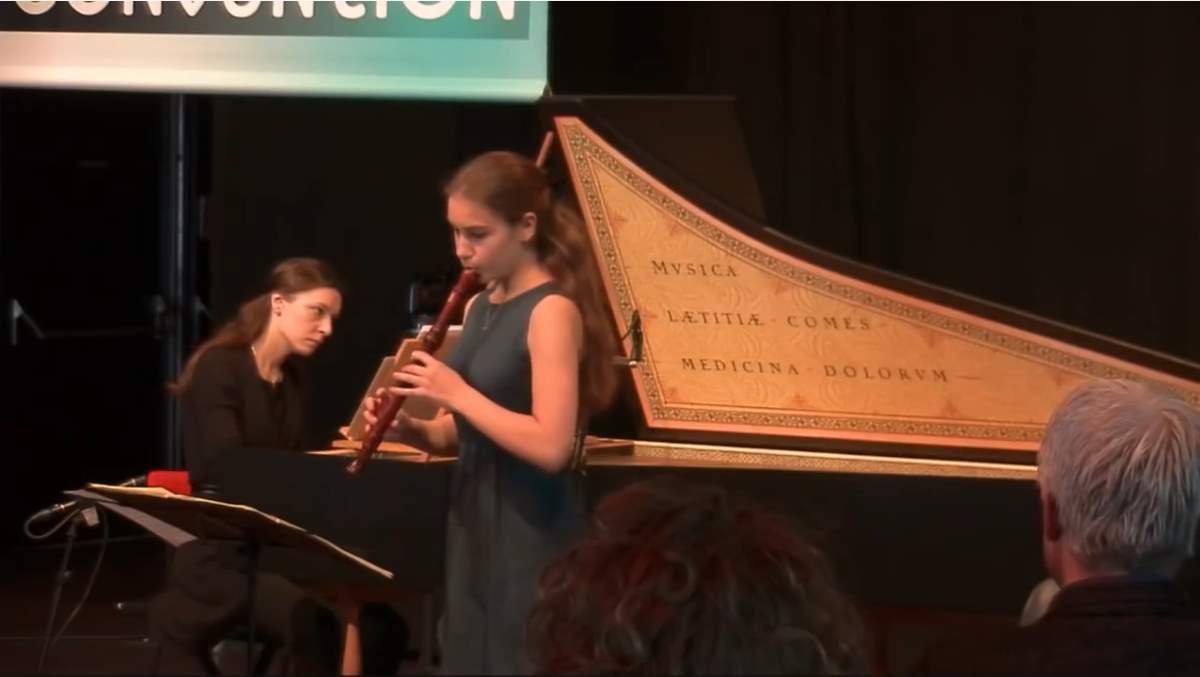When we hear the word recorder today, most of us think of a simple wooden or plastic flute – or of recording audio. But the name of this wind instrument has nothing to do with capturing sound in the modern sense. In medieval English, “to record” meant to practice, learn, or remember a tune. The recorder’s gentle tone and ease of play made it perfect for this purpose, and the old meaning of the word stuck long after the language changed.
Why was the Recorder (the Wind Instrument) Named Recorder?
The recorder gets its name from an older use of the word record, which didn’t originally mean “to write something down” but rather “to learn by heart, rehearse, or practice a tune.”

Here’s the linguistic and historical background:
- In Middle English (14th-15th centuries), recorden meant to sing, play music, or practice a tune. It came from Old French recorder and ultimately from Latin recordārī – “to remember” (literally “to call back to the heart,” from cor, heart).
- The earliest surviving references to the instrument in English (late 14th century) use phrases like “to play the recorder,” which literally meant “to play the flute-like instrument used for learning and practicing music.”
- At the time, the recorder was a relatively soft-toned, easy-to-control wind instrument, suitable for teaching, practicing melodies, and accompanying singing – all activities connected to recording in that older sense.
- Over time, the meaning of record shifted in English toward “to write down” or “to make a permanent account,” but the instrument’s name stuck.
So the name isn’t about recording sound in the modern sense – it’s about practicing and remembering music.
Sources
- Recorder (musical instrument) on Wikipedia